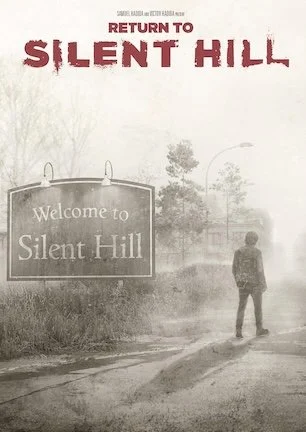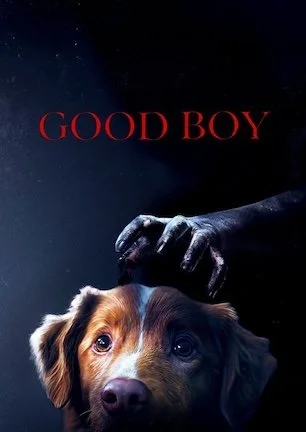Studio: Dark Sky Films
Director: Julien Maury, Alexandre Bustillo
Writer: Annelyse Batrel, Ludovic Lefebvre
Producer: Fabrice Lambot, Pierre-Marcel Blanchot, Leo Maidenberg, David Layani
Stars: Virginie Ledoyen, Paul Hamy, Francis Renaud, Malik Zidi, Cameron Bain, Lya Lessert, Sandrine Bonnaire
Review Score:
Summary:
Two rival detectives come together to investigate a string of murders and missing children in a small French town connected to a disturbing urban legend.
Review:
Curiously, no one can find any information on the internet about “The Soul Eater,” the titular creature, not the film itself. That’s because this particular boogeyman is exclusive to Roquenoir, an ordinarily quiet little town slowly dying on a forested French mountainside, where only locals know its legend. According to the movie’s lore, after the Soul Eater does what its name says, the mythical monster replaces victims who dare to disturb it with demonic doppelgangers that then return home to commit unspeakable acts.
Unspeakable acts have drawn two different investigators to the town, which used to be described as “sleepy” until a recent rash of violent events, and one weirdly persistent plane crash, woke everyone up. Captain Franck de Roland of France’s National Gendarmerie came to investigate a string of missing children. Commander Elisabeth Guardiano of the National Police was summoned by the double homicide of two parents who savagely stabbed each other to death. Franck’s kidnappings and Elisabeth’s murders have one thing in common. Claims concerning the Soul Eater hang over all of the crimes, connecting to disappearances as far back as six months, and continuing to haunt grisly slayings yet to come.
Based on the novel “Le Mangeur d’Ames” by Alexis Laipsker, “The Soul Eater” probably works better as a book since it’s not quite the movie seemingly sold by the art or the pedigree of its directors, genre veterans Julien Maury and Alexandre Bustillo. The original one-sheet depicts a horned figure in a burlap hood looming ominously over a clouded mountain setting. The figure returns for the home video cover, albeit from behind and in smaller silhouette, to lead a child by the hand into a red-colored forest. Maury and Bustillo, meanwhile, are widely regarded for their high-tension, often graphically gruesome horror films like “Inside” (review here), “Livide” (review here), and “Leatherface” (review here).
Roped together, the impression offered above suggests one thing. That’s just not necessarily the thing “The Soul Eater” actually is.
You won’t get a great deal of action out of the movie. Structured as a police procedural, we arrive at each scene in “The Soul Eater” usually after blood has already been shed, leaving us to look at the gory aftermath without witnessing the animalistic behavior that brought us there. The film slips in a couple of foot chases, one of which includes a car crash as well as gunfire, on occasions implying the filmmakers sensed there weren’t enough organic thrills on the screen. Otherwise, expect extended sequences of questioning witnesses, collecting clues, conducting research, and coming to sudden conclusions at serendipitous moments.
What you will find is ample atmosphere. With scenery subdued by overcast skies, and forest floors covered in fallen leaves, there’s a distinctly crisp feeling of late autumn air throughout the movie. Coming up short of qualifying as overtly creepy, this mood nevertheless hangs a drape of pervasive sadness that appropriately complements the film’s darkly disturbing content.
Several people have likened “The Soul Eater” to “The Crimson Rivers” a.k.a. “Les Rivieres pourpres,” a psychological thriller from 2000 starring Jean Reno and Vincent Cassel. I’ve not seen that film, so I would instead say the American crime drama (based on a Danish TV series) “The Soul Eater” most reminds me of in terms of tone is “The Killing” with Mireille Enos and Joel Kinnaman. “The Soul Eater” and “The Killing” both take place in visually dour environments. Both feature a focused loner paired with a more maverick partner. They also involve mysterious murders and a community conspiracy, except “The Soul Eater” introduces an occult element similar to what the first season of “True Detective” did with its premise.
“The Soul Eater” gets bit by its plot’s design when it arrives at a sloppily staged ending where people are put in conspicuous positions to wait for conveniently timed moments and reveals. Prior to getting there, you’re likely to have deduced what’s going on since the story has too few characters and too long of a runtime to maintain before smoke inevitably starts fading away from the mirrors. Even without a fully satisfying sting or an unpredictable twist, “The Soul Eater” hits higher marks for gripping slow-burn suspense and character-driven intrigue.
Sensitive viewers should be cautioned that the film not only deals with child abductions and murder, but also with domestic violence, dark web torture porn, suicide, and even sexual arousal during death. Maury and Bustillo evidently aren’t shying away from the shocking subject matter that helped make their name. They’re just working with it in a different arena than full-blown horror now.
Review Score: 60






While the 110-minute runtime could use a trim to maintain more energy, “Redux Redux” is an easy recommend for anyone who enjoys low-key sci-fi.